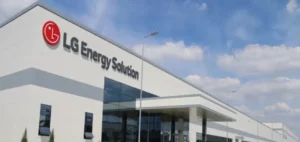A major milestone in Europe’s strategy for energy independence has been achieved with the recent inauguration of a lithium refining plant in Frankfurt, Germany. Spearheaded by Vulcan Energy, this project relies on innovative and environmentally friendly technology: lithium extraction through geothermal energy. This process significantly reduces carbon emissions compared to traditional techniques.
By utilizing geothermal brine from the depths of the Rhine Valley, Vulcan Energy converts raw lithium into lithium hydroxide, a key component for electric batteries and energy storage. This method uses naturally heated water at 165°C, which also generates green energy sold to the local grid. According to the company, this process could supply between 5 and 10% of Europe’s needs by 2027.
A Strategy to Reduce Dependence on Imports
Europe’s current dependence on lithium imports, primarily from Australia, Chile, and China, poses a strategic challenge for automakers and the energy storage sector. These industries, committed to transitioning towards sustainable solutions, face growing demand for this critical metal. The European Union aims to refine 40% of critical materials locally by 2030. Vulcan Energy’s plant marks a crucial step in this direction.
This project is part of a broader initiative, with 28 similar plans underway in Europe, some of which also utilize geothermal energy, like Eramet’s project in Alsace. However, most are still in the pilot phase.
Economic and Environmental Challenges
Local refining could enable Europe to reduce its carbon footprint, a crucial goal in the fight against climate change. A report by the NGO Transport & Environment (T&E) highlights that Vulcan Energy’s process generates 83% fewer carbon emissions than traditional methods used in China.
However, challenges remain. Alina Racu, an expert at T&E, warns: to achieve true independence, every stage of battery production, including cathode manufacturing, must take place in Europe. Yet, these components are still primarily imported from China.
Ambition Supported by Partnerships
The European Union recently signed an agreement with Serbia to exploit lithium deposits starting in 2028. Additionally, companies like AMG Lithium, although dependent on imports, are enhancing refining capacity on the continent. Vulcan Energy, for its part, receives support from the German government to the tune of €100 million, demonstrating public commitment to developing a local and sustainable value chain.
With lithium demand expected to double by 2030 to reach 2.5 million tons, these European initiatives are indispensable. However, to achieve full independence, stakeholders must overcome economic, technological, and regulatory hurdles.





















